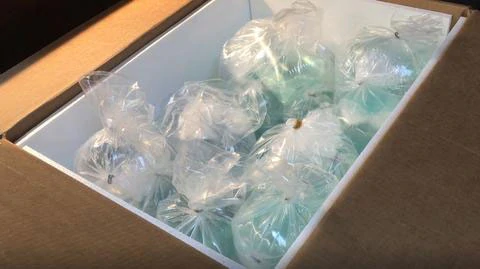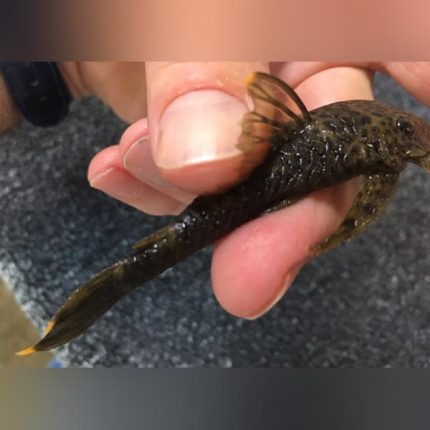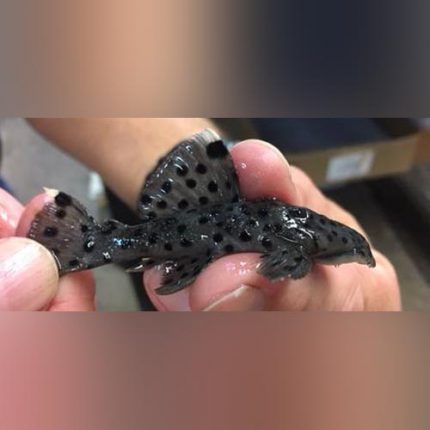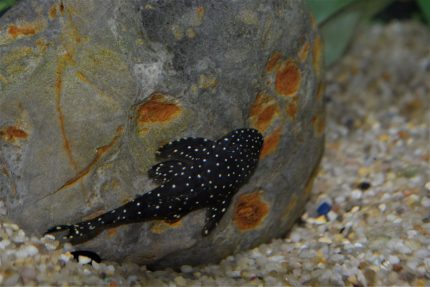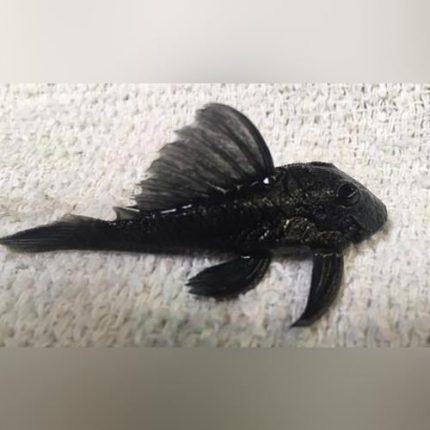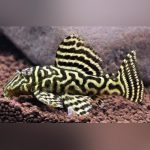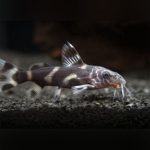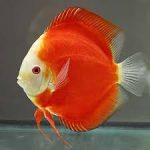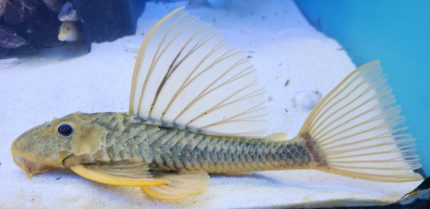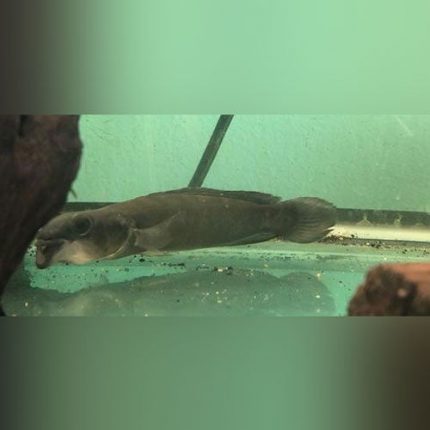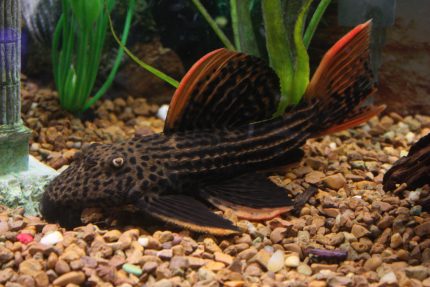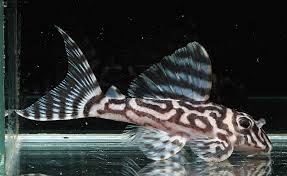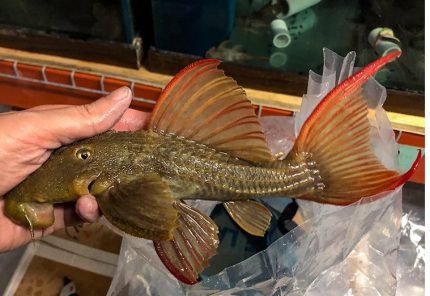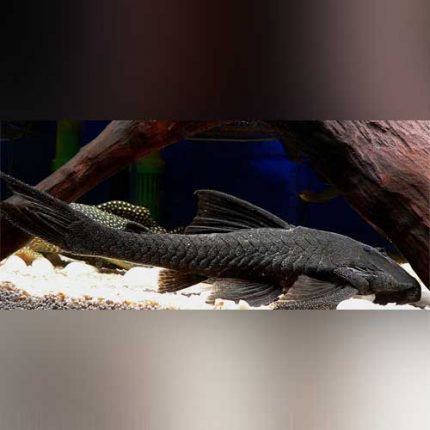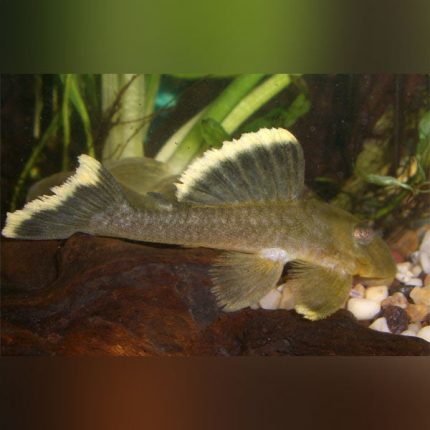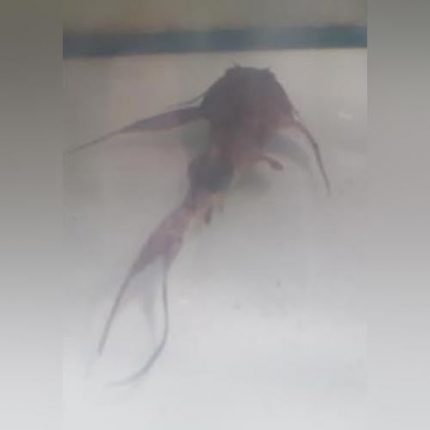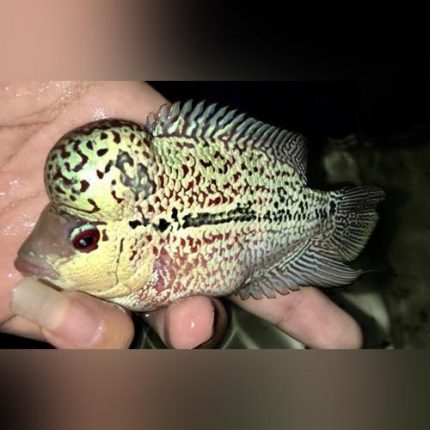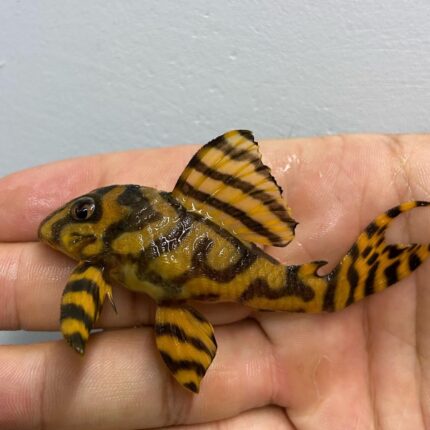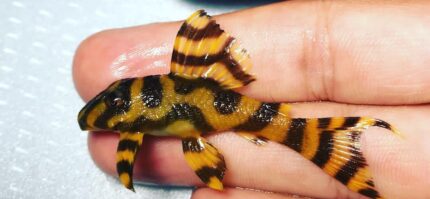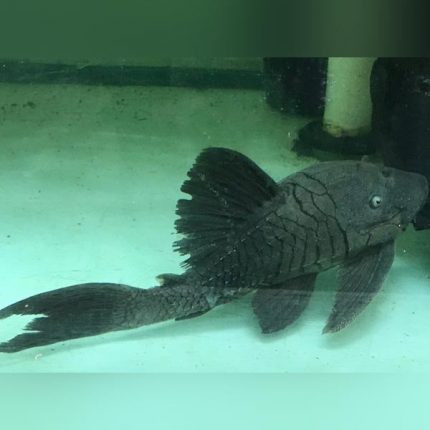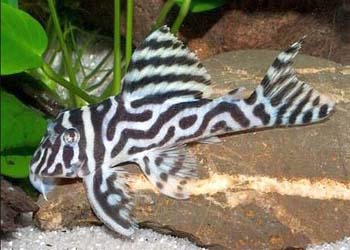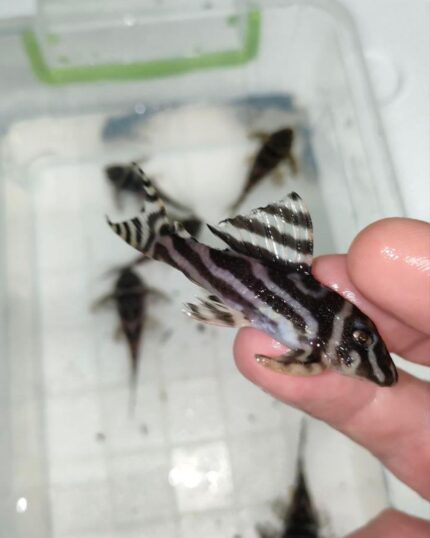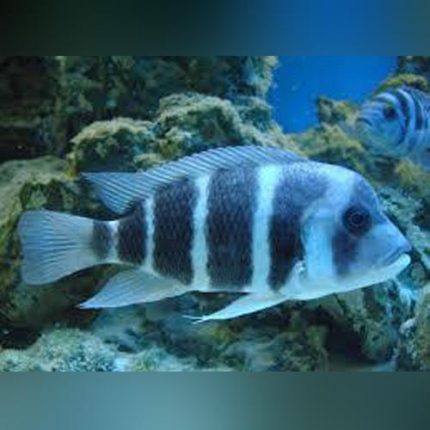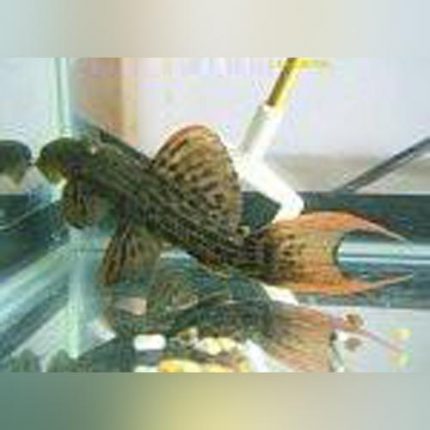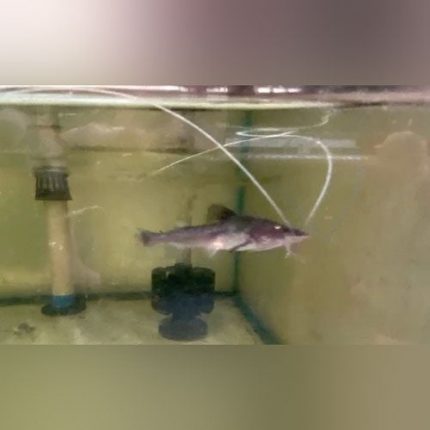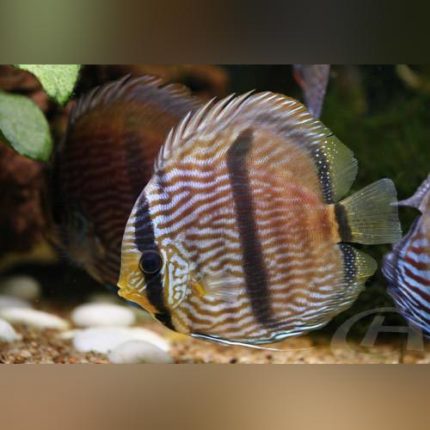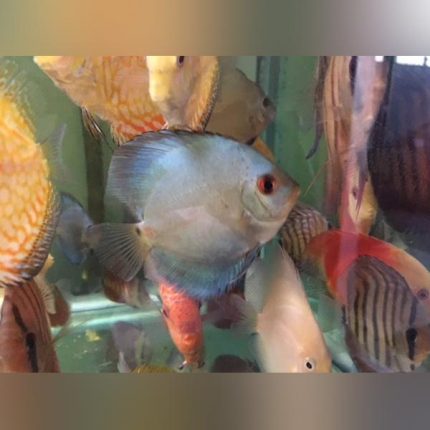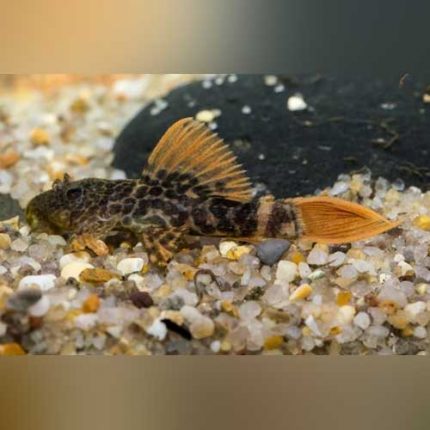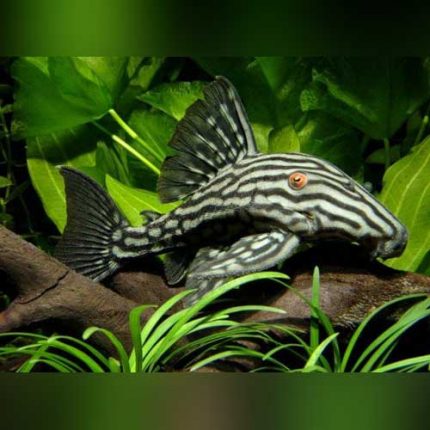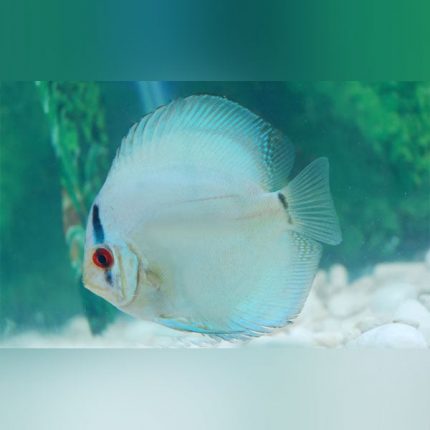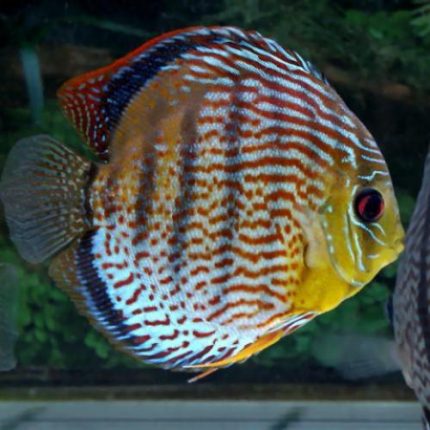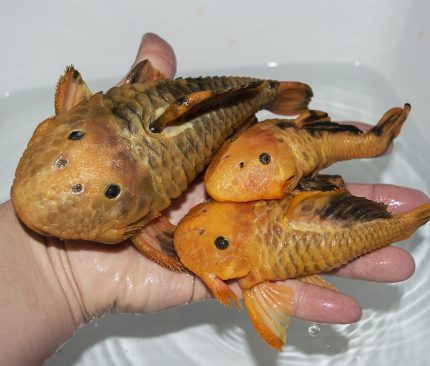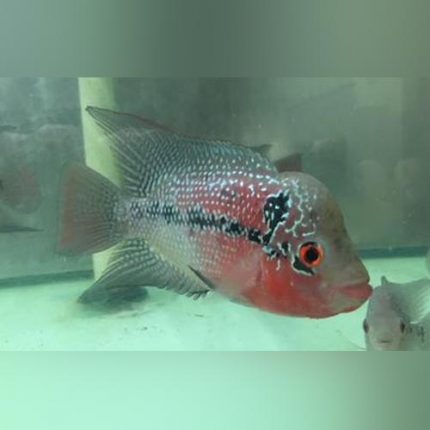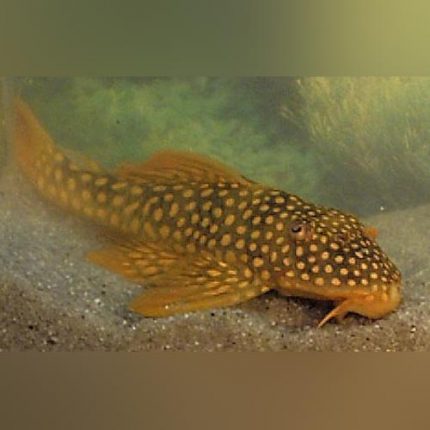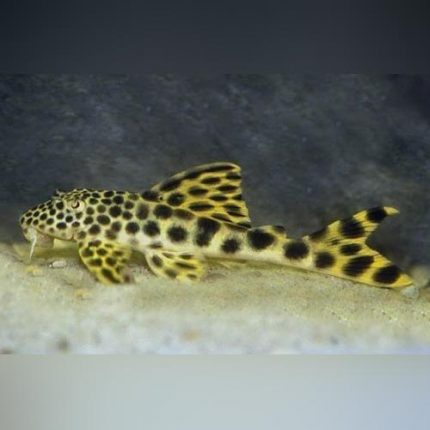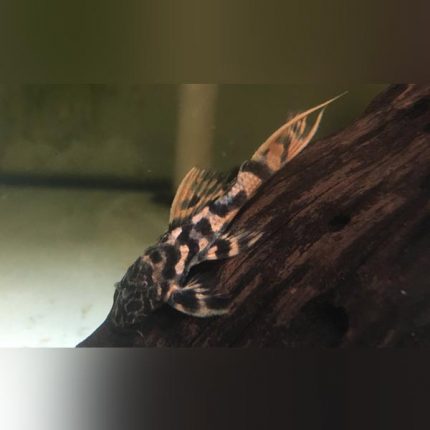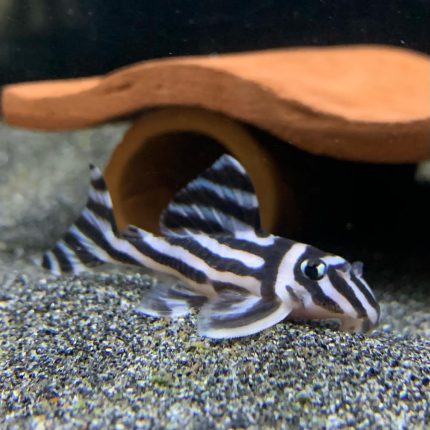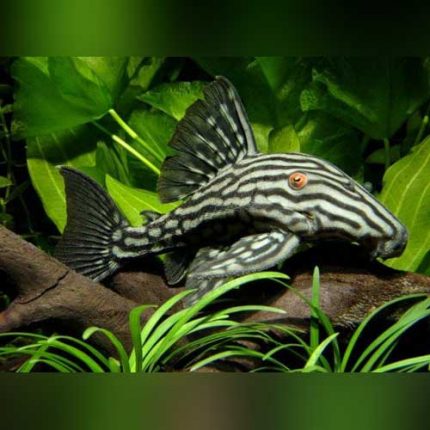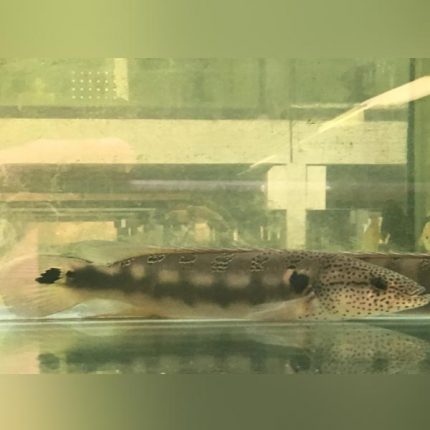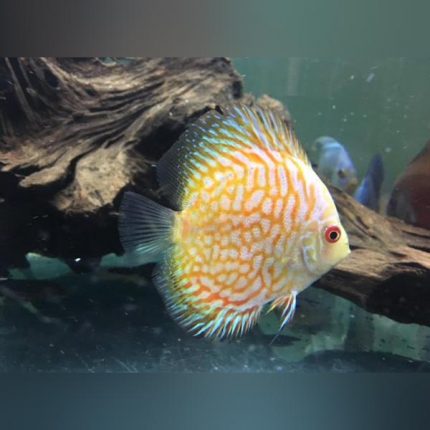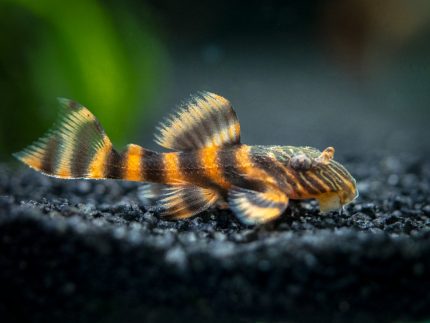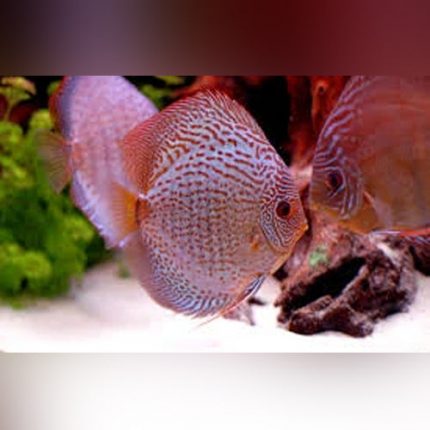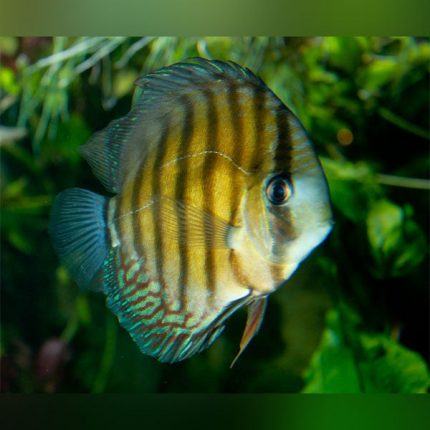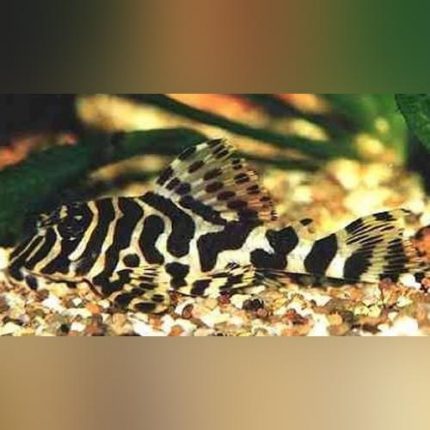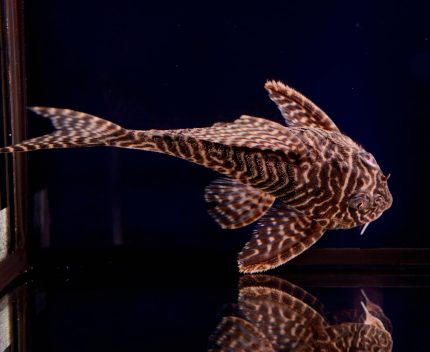Hypostomus luteus is a quite spectacular and unusual Pleco. Only in recent years has it become a new sensation in the aquarium hobby, and it's among the most expensive Plecos on the market. It hails from the border region between Brazil and Argentina, which means it should not be kept in too warm water (18-24 C). One of the extraordinary traits of Hypostomus luteus is how it changes its appearance from juvenile to adult; young specimens are dark grey/black with small golden spots and a yellow caudal fin. As they age, they gradually transform into all golden/orange adults. If the temperature requirements are met and enough space and food are given, Hypostomus luteus is a hardy and easy to keep Pleco. It's currently not allowed for export from Brazil, so most individuals are exported from Argentina and Uruguay.
This is a beautiful variety of what are called ‘Fancy Pleco-s’; it originates from Rio Xingu in Brazil. Because of its maximum size, a large setup with powerful filtration is required, as is proper maintenance of water quality.
It is more carnivorous than it is herbivorous, so be sure to feed a mix of foods. It is a nocturnal feeder, so feed as late as you can. Highly oxygenated water is a must; good water flow and driftwood are highly recommended, as are rocky hiding places. Avoid mixing with other pleco-s as fights over territory would be inevitable. As it gets larger it produces quite a bit of waste, so a robust filtration system cannot be overstressed
The L024 or Redfin Cactus Pleco is a colorful and sought-after species of heavily armored pleco originating in the Rio Tocantins in Brazil. Like most members of its genus, it is largely a carnivore and prefers protein-rich foods. The “Super Red” variant displays intense, vivid reds in the dorsal and pectoral finds and is found only in the waters surrounding the town of Tucurui. In the aquarium, the Redfin Cactus Pleco should be offered ample cover and care should be taken with other bottom-dwelling species as they can be territorial. With their large adult size and space requirements, Redfin Cactus Plecos are recommended for experienced hobbyists with large aquariums and heavy filtration.
The first pectoral fin ray of the male is somewhat thicker than that of the female. Males in breeding conditions further develop their spine-like ''odontodes'' on this ray. The male has a slightly broader head than the female, best observed from above.
Unlike the popular opinion of many other loricariids, Hypancistrus species are more carnivores than algae eaters. This is backed up by a small and lightly toothed mouth that indicates it is a poor algae eater. Provide mainly meaty foods such as bloodworm and even brine shrimp.
A unique, heavily armored pleco from the Tocantins river basin in Eastern Brazil, the Rubber or Chubby Pleco gets its name from its unusually wide, flattened body shape. In the wild, they are found in areas of moderate to fast water movement and typically live in rocky areas. The species is normally a grey color in nature but certain rare and very sought-after specimens show a striking all-yellow or partially yellow and black coloration. They are a hardy and undemanding pleco in the aquarium but should be offered plenty of covers and excellent water quality should be maintained through frequent large water changes. An omnivore, they will accept most sinking foods and fresh veggies but be sure to offer some protein-rich options like Repashy gel diet or Fluval Bug Bites Pleco Formula regularly.
In recent times, L397 has become increasingly popular in the hobby. This is certainly due to the very striking coloration of juveniles. It's actually a very rare species in the hobby, but due to some successful breeders like Cristoffer Forssander in Sweden, significant numbers of L397 are now on the market. It's a hardy and easy-to-maintain species as long as the wood is provided for their diet
This is a beautiful variety of what are called ‘Fancy Pleco-s’. It originates from whitewater sections of the Rio Xingu near the town of Belo Monte (Brazil). Their max size and peaceful nature make them a popular addition to peaceful-community aquariums. Good (oxygen-rich) waterflow and driftwood are a must, while a pebbly substrate and rocky hiding places are highly recommended (to recreate the bottom of a flowing river). King Tigers are considered peaceful community fish, but like most fancy plecos, they can be territorial and aggressive towards conspecifics & other bottom dwellers. Avoid mixing with other pleco-s unless the tank is big enough to establish separate territories (at least 1.5 square feet per pleco, with decorations as dividers). It is more of a carnivore than a herbivore, so be sure to feed a mix of meaty and veggie-based foods; it is a nocturnal feeder, so feed as late as you can.

